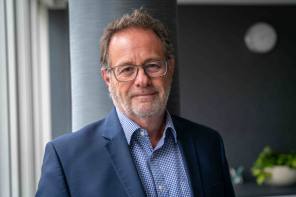

Ethical investment platform Ethex wants to use the growing population of sustainable investments to show IFAs the benefits of positive investing.
Lisa Ashford, the firm’s chief executive, said: “Traditionally ethical investments are quite hard to access for individuals. That’s beginning to change a little bit, but I also think advisers are becoming much more familiar with ethical products.
“Their starting point has been some of the large ethical funds out there, but there are a lot more products that are starting to become available, which are relevant to their clients.”
As a result Ethex, which has raised more than £60m since its launch in 2013, is working with a number of IFAs to help them better understand the positive investment market.
Ms Ashford said several years ago, people were more cynical about making ethical investments.
But, over time, sentiments have changed and it is now seen as a more viable sector.
Ethex’s business model is similar to peer-to-peer lending as investors use an online platform to lend money to individuals or businesses.
Customers can go directly to Ethex, or through an adviser, which is a growing trend according to Ms Ashford.
Ethex’s investors include the more experienced savvy investors and the progressives; those who are more theme or issue-led and are typically younger.
Customers can browse products by investment type; shares or bonds, by the business sector; renewable energy or fair trade or by who benefits.
Currently, the company has its fingers in a number of UK community energy, social housing and arts and heritage-style projects.
Ms Ashford said in the UK there is a demand for the transformation of community assets into working business models, and Ethex is now expanding internationally.
It has just started a joint venture with Dutch crowdfunding company Lendahand called Energise Africa.
It is providing working capital to solar companies who want to scale up their operations in Africa, to provide affordable solar power kits to individual households and businesses.
UK investors who put their money into solar companies could potentially get returns of between 5 and 6 per cent over a 24-35 month period, Ms Ashford explained.
She added: “The bonds are relatively short term, so it is quite a liquid product. Traditionally people think of ethical investments as very long-term and quite illiquid, but this one bucks that trend a little bit.
“It is quite an attractive product and it solves a challenge for the solar business and is providing a reasonable and fair financial return, plus a really positive impact.”
It is also the type of investment that Ms Ashford said younger investors are drawn to.
In a study last year, the company found that millennials were more interested in international development than their older counterparts.
Additionally, while those over 50 showed a level of scepticism towards positive investments, and a lack of willingness to increase their commitment, those under 40 appeared to be much more socially motivated.
They are also more willing to invest a higher proportion of their wealth and to forgo financial returns in favour of positive social or environmental outcomes.
Ms Ashford said: “It feels as if the dialogue has changed in the last six months. We are seeing more talk about ethical investing. I don’t think that is because we are making ourselves more available, there is just genuine interest.”
In the same study, Ethex found that 60 per cent of the population would be eligible to make positive investments, because they are over 18 and do not find themselves in debt.
Of that number, 20 per cent already hold positive investments and a further 31 per cent would be interested to do so for the first time.
This means more than half the UK population is committed to positive investing to some degree.
And according to the report, the level of commitment appears to be strong. Over a third – 39 per cent – would like to commit more of their wealth to positive investing than they do now.
But there is still an issue around people understanding the differences between ethical, sustainable and positive investments.
“As an industry, we are finding ourselves communicating a bit of an agenda and we have to bring ourselves and the product forward to an audience that is receptive. That is a challenge and we have to try and solve that,” Ms Ashford added.
Ethex has invested £62.5m through the platform in the last five years. It wants to achieve a further £100m in investments by 2021.
And part of this growth, Ms Ashford believes, will come from the IFA market.
She said: “We work with financial advisers who will come to us and they might have a client who wants to apportion a certain amount of their wealth to positive investments.
“Some of that is probably going to be for listed funds and some of it may be for unlisted products. We will help them put a portfolio together based on that criteria and we can help with suitability letters. IFAs are still trying to work out whether we are competition or complementary. I think perhaps the initial reaction was competition but I think over time they are realising we can be complementary.”
Ima Jackson-Obot is a features writer of Financial Adviser
Lisa Ashford's career highlights:
2014 - Present: chief executive and director at Ethex
2013 - 2014: Business development and commercial strategy, Ethex
2011 - 2014: Clean energy, carbon finance and crowdfunding consultant (independent)
2008 - 2010: Global head of voluntary and new markets, EcoSecurities



